Implementation of GRI Standards in RMG sector of Bangladesh

Swisscontact in collaboration with The Daily Star organised a roundtable titled 'Implementation of GRI (Global Reporting Initiatives) Standards in RMG sector of Bangladesh' on October 24, 2024. Here we publish a summary of the discussion.
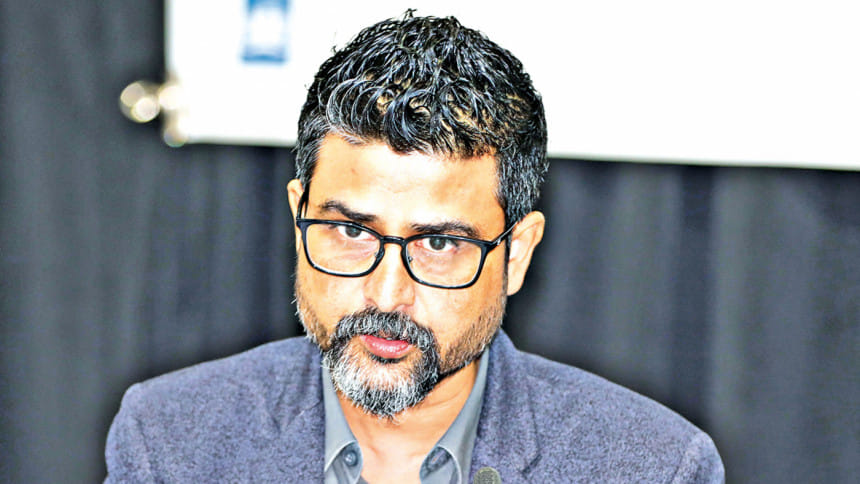
Mujibul Cezanne Hasan, Country Director, Swisscontact
Safeguarding our planet is essential to ensuring the sustainability of businesses and achievements in the long term—not just in Bangladesh but on a global scale. It is encouraging to see growing awareness and interest, especially regarding the RMG sector's compliance and its readiness to embrace necessary changes for the future.
Over time, people increasingly recognise the importance of protecting the planet while pursuing growth. Sustainability is not merely a cost but an investment that will sustain our development and unlock new opportunities. This approach not only enhances competitiveness but also reduces costs in various ways.
Moreover, the millions of women and men employed in the RMG sector, alongside entrepreneurs and government agencies, must work collaboratively to foster an environment where the sector can thrive. We are playing a catalytic role in advancing the sector through joint collaboration, with the ultimate goal of enabling it to progress independently.
Our aim is to gain fresh perspectives and translate these insights into programme design, implementation roadmaps, and future strategies by bringing all stakeholders to the table.
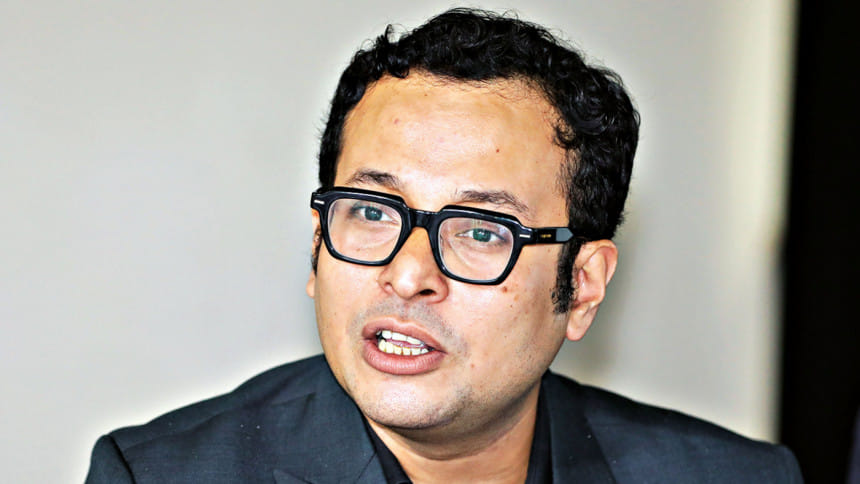
Mohammad Monower Hussain, Head of Sustainability, Team Group (Keynote Presentation)
Bangladesh's RMG industry began in 1978 with a consignment worth just $12,000. Today, the industry exports nearly $47 billion annually, marking exponential growth. It is remarkable how stakeholders have navigated this journey.
Although the early phase was largely unplanned, the industry's unique selling proposition (USP) has made it resilient over time. The sector has weathered significant challenges, such as the MFA quota phase-out and the Rana Plaza disaster. Yet, Bangladeshi entrepreneurs have consistently risen to these challenges, much like a phoenix. In addition to its substantial contribution to the national economy, Bangladesh's RMG industry is now the second-largest RMG exporter globally.
At this stage, Environmental, Social, and Governance (ESG) principles are no longer optional in the global business landscape. Legal frameworks now require comprehensive reporting on sustainability initiatives, supported by evidence and data.
The global apparel supply chain is inherently complex, encompassing raw material networks, textile companies, garment manufacturers, brands, buying houses, trading companies, and a variety of retail formats. At every stage, stringent regulatory systems ensure traceability from fibres, fabrics, and chemicals to finished products.
Germany's Supply Chain Due Diligence Act, for example, mandates full traceability of export products from Bangladesh. This legal framework imposes punitive measures on non-compliant companies, affecting not only the registered brands in countries like Germany, Switzerland, and the Netherlands but also their entire supply chains. Compliance now requires a proactive, risk-based approach rather than reliance on corrective action plans or audits. Non-compliance triggers immediate consequences, signifying a shift from "soft" to "hard" law. A unified and collaborative approach across the supply chain is essential to address these challenges.
Globally, major markets, including the EU, US, UK, Canada, China, and India, are enforcing rigorous regulations on climate reporting, diversity, equity, inclusion, supply chain due diligence, and the circular economy. Meeting these standards now demands concrete, measurable ESG actions, with transparency and accountability embedded across the supply chain.
The evolution of ESG regulations has shifted sustainability reporting from voluntary to mandatory. For Bangladesh, with the EU accounting for 73% of its RMG exports, these regulatory shifts are highly significant. Compliance not only enhances competitiveness but also aligns with consumer preferences, as 66% of global consumers—and 73% of millennials—are willing to pay more for sustainable products supported by data.
As Bangladesh approaches its LDC graduation in 2026, the RMG sector faces critical challenges. These include ESG compliance, climate action requirements, the EU's circular economy goals, and market dynamics such as automation, nearshoring, and global geopolitics. Despite its leadership in sustainable garment manufacturing, with 230 LEED-certified factories, transitioning to compliance-based ESG standards remains vital to safeguarding global market access and maintaining economic momentum post-LDC graduation.
Initiatives like BGMEA's Responsible Business Hub (RBH) and the digital ESG data platform, developed with support from GIZ and UNDP, are significant steps forward. Partnerships with organisations such as the Embassies of the Netherlands and Denmark and major global brands have launched projects like PACT, benefiting around 500 factories.
Associations like BGMEA and BKMEA possess valuable resources, such as the Textile Technology Business Center (TTBC) and RBH, which can be leveraged for training. Academic institutions should also contribute through short courses and research to bolster ESG expertise across the industry.

Michael Klode, Project Manager, Programme for Sustainability in the Textile and Leather Sector (STILE), GIZ
The governance aspect of ESG increasingly appeals to investors and the financial sector, marking a shift from a profit-only focus. Research indicates that companies prioritising these aspects tend to perform better financially and achieve greater success in stock markets.
In Bangladesh, the Dhaka and Chattogram Stock Exchanges have mandated GRI reporting, but these obligations are yet to be fully implemented.
In collaboration with BGMEA and BKMEA, we supported the development of the industry's first sustainability report and are now working on the second. A significant challenge, however, lies in data sharing, as individual producers are often reluctant to disclose key performance indicators. To address this, we need a system that recognises and rewards transparency efforts while providing appropriate incentives to encourage openness.
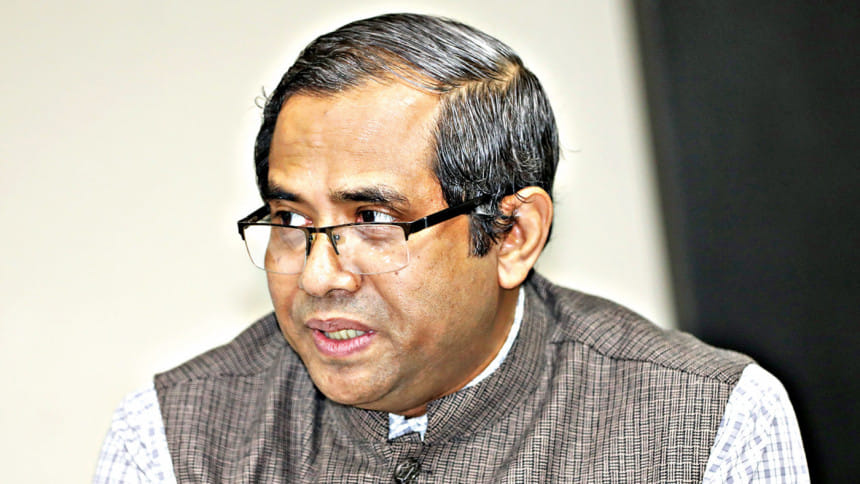
Dr. Khondaker Golam Moazzem, Research Director, Center for Policy Dialogue (CPD)
In Bangladesh, the focus on ESG should shift to SGE, given our ongoing struggles with social issues. Progress in workers' organisations and trade unions remains limited, which hampers our ability to address worker-related challenges effectively. Industry associations must recognise the need for support and guidance as new compliance requirements emerge, addressing not only environmental and human rights concerns but also corporate governance.
Many factories supplying online platforms operate outside industry associations and fail to meet safety standards. Addressing this emerging sector and ensuring compliance with international labour standards will be a key challenge.

Thijs Woudstra, Deputy Head of Mission, Head of Cooperation, and Head of Economics, the Netherlands Embassy in Dhaka
The RMG sector is both significant and highly competitive. Within two years, Bangladesh will transition from development partnerships to equal trade partnerships, necessitating adherence to shared rules and regulations. The GRI framework plays a crucial role in facilitating data collection and transparency, ensuring compliance with the EU's ESG requirements and enabling market access in Europe.
Despite existing challenges, Bangladesh is well-positioned to achieve full compliance, thanks to the intellect and efforts of BGMEA. The garment industry has demonstrated remarkable resilience, particularly in the aftermath of the Rana Plaza incident, and has established itself as a global leader in occupational safety and health. Buyers consistently rate Bangladeshi companies above their competitors in these areas.
As we work together to meet upcoming regulations, timely action is imperative, given the relatively short transition period by European standards. With Bangladesh set to graduate to middle-income country status by 2026, the Netherlands is committed to supporting this journey. GRI will continue to provide assistance to help overcome these challenges.
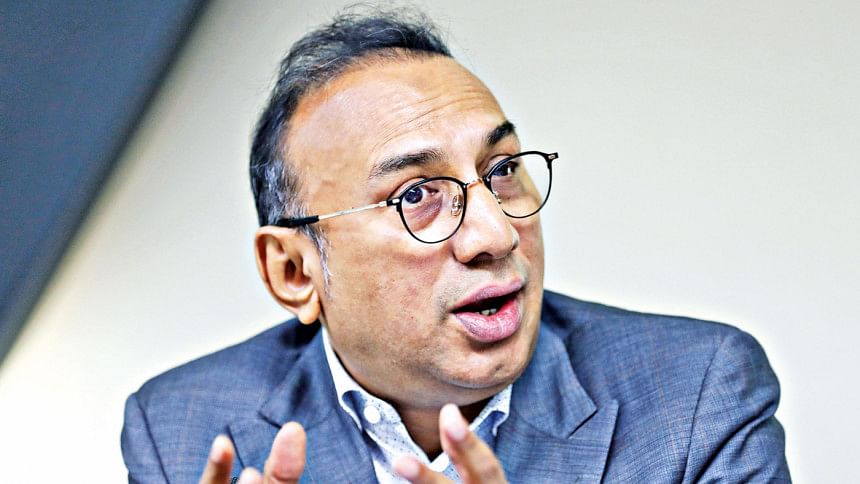
Asif Ashraf, Former Vice President, BGMEA & Managing Director, Urmi Garments Ltd.
The RMG entrepreneurs acknowledge BGMEA as the first trade body in Bangladesh to initiate GRI reporting, starting with 50 factories supported by GIZ. Additionally, 20 to 25 factories have independently begun reporting, which is a crucial development. However, many small and medium-sized factories lack the necessary manpower and expertise for compliance, presenting a significant challenge.
To address this, the industry and universities must develop professionals skilled in navigating GRI reporting. More seminars organised by trade bodies and development partners are essential to provide guidance on compliance requirements.
Support from the government is urgently needed in three critical areas: achieving zero emissions, promoting water reuse, and advancing the circular economy.
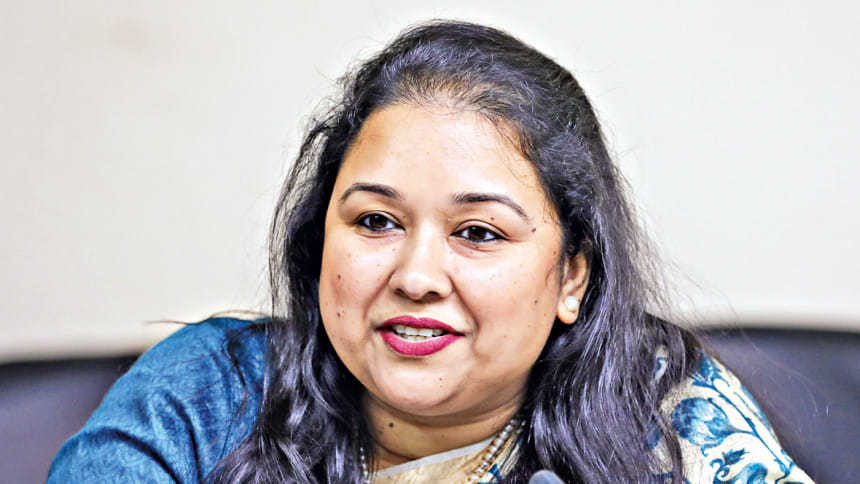
Dr. Melita Mehjabeen, Professor, IBA, University of Dhaka
Out of 30 RMG factories engaged with GRI, only seven currently adhere to its guidelines. GRI includes 246 indicators across three areas, built on eight principles, such as materiality, stakeholder inclusiveness, and circularity. Unfortunately, many companies equate circularity solely with recycling, demonstrating the need for further education.
Entrepreneurs seeking loans should be required to submit sustainability reports, as mandated by Bangladesh Bank, to align with international standards.
The Ministry of Industry should prioritise the development of the informal sector and SMEs, as these sectors constitute a major part of the RMG value chain.
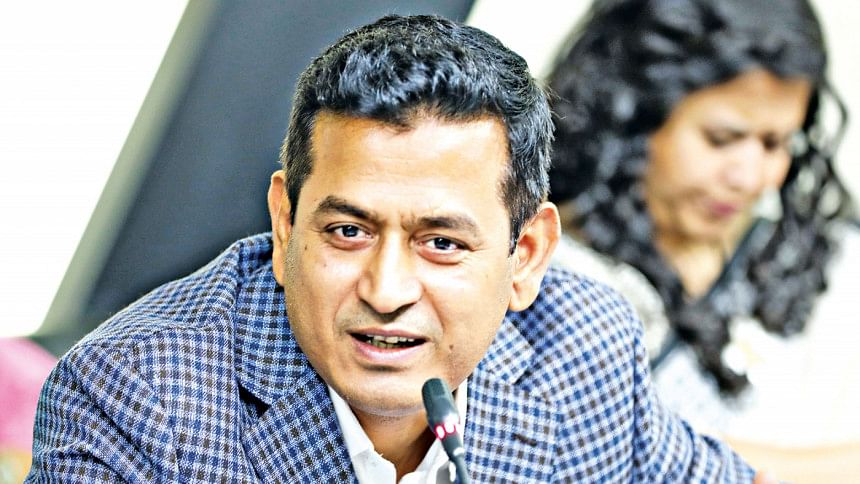
Md. Akthar Hassain Apurbo, Vice President, BKMEA
Bangladesh is experiencing increasing competition from other countries. By 2029, as the country loses duty-free access following its LDC graduation, it will need to adjust to new rules and regulations, while current LDC countries retain preferential benefits. SMEs are especially vulnerable to these changes, whereas larger factories are better equipped to meet the new demands and guidelines. To strengthen the RMG sector, both the government and development partners must offer enhanced support.
GRI and related reporting will reveal carbon emission levels, underscoring the urgency of adopting newer technologies. This will require substantial investments at both grassroots and institutional levels.
Soft loans with favourable terms, such as lower interest rates and flexible repayment schedules, should be made available, especially for SMEs, to help them navigate these transitions.

Anis Nugroho, Programme Manager, Better Work
Despite facing numerous crises, including the Rana Plaza incident and the COVID-19 pandemic, Bangladesh has shown remarkable resilience. The country has made progress in ESG areas, particularly in reducing child labour and improving workplace safety standards.
The social component of ESG is fundamental to workers' rights. Addressing issues like child labour, freedom of association, discrimination, forced labour, and workplace safety remains crucial.
A unified code of conduct is essential for standardising rules and addressing the increasing stringency of regulations.
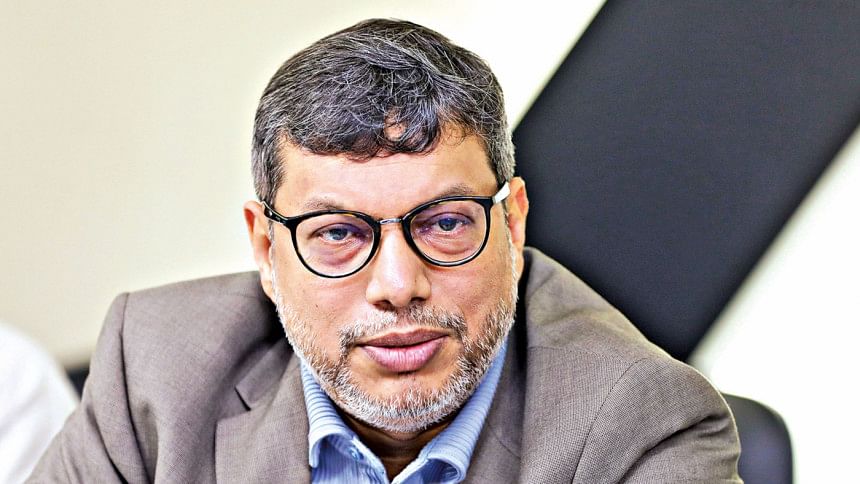
Md. Zahedul Hoque, Managing Director, Kido BD
Despite the many challenges, I believe that Bangladesh is heading in the right direction. We need to prioritise strengthening our own organisations rather than relying solely on foreign entities like Swisscontact. This will help us avoid the need to involve third parties in our initiatives.
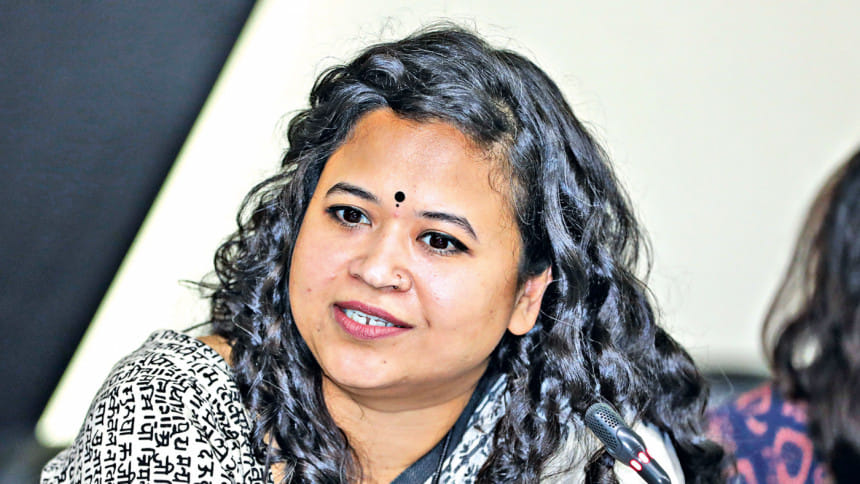
Ainee Islam, Program Director, Asia Foundation
At APARAJITA, our primary focus is on the well-being of RMG workers, the majority of whom are women. We are concerned not only with the challenges faced by these workers but also with the needs of their communities. Furthermore, we are committed to positioning the RMG sector within the global context. Although we are not currently focusing on governance and GRI issues, these will be incorporated in the next phase.
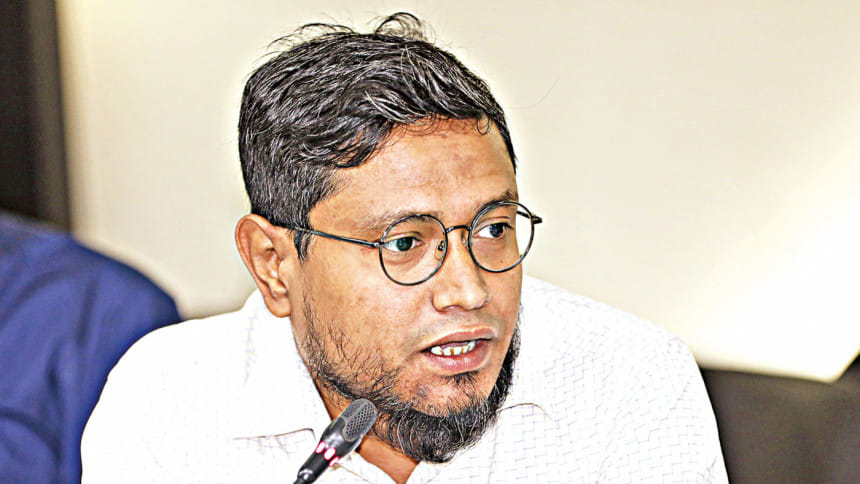
Mohammad Abdullah Yousuf Khan, Program Manager, Solidaridad Network
As you know, the CSRD primarily applies to European companies, as does the GRI. However, these frameworks also have implications for us, especially given the complexities and lack of transparency in the supply chain. Our industry associations should develop a roadmap for GRI adoption within the public-private framework, as several factories have already implemented it. We must also consider the EU's Corporate Sustainability Reporting Directive (CSRD) and the EU Corporate Sustainability Due Diligence Directive (CSDDD) for efficient export practices.
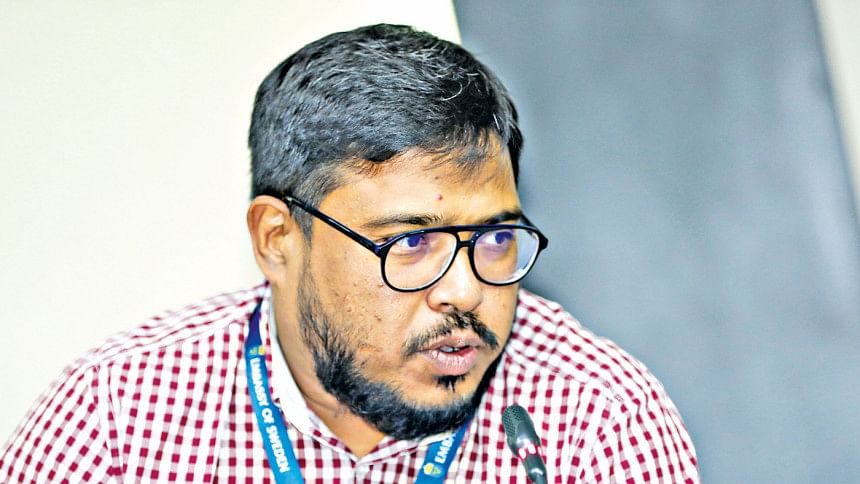
Md Ikramul Haque Sohel, Senior Programme Officer- Market Development at Embassy of Sweden
Sweden is a significant importer of our RMG products, and we are working closely with our development partners to implement various projects, including ESG initiatives.
In accordance with ESG requirements, many compliance standards must be met, and factories are under significant time pressure. Another challenge is the lack of expertise, both technical and theoretical. It is essential to achieve harmonisation as different organisations have their own specific requirements.
Swisscontact is currently conducting a study to determine the most effective ways to address the ESG challenges.
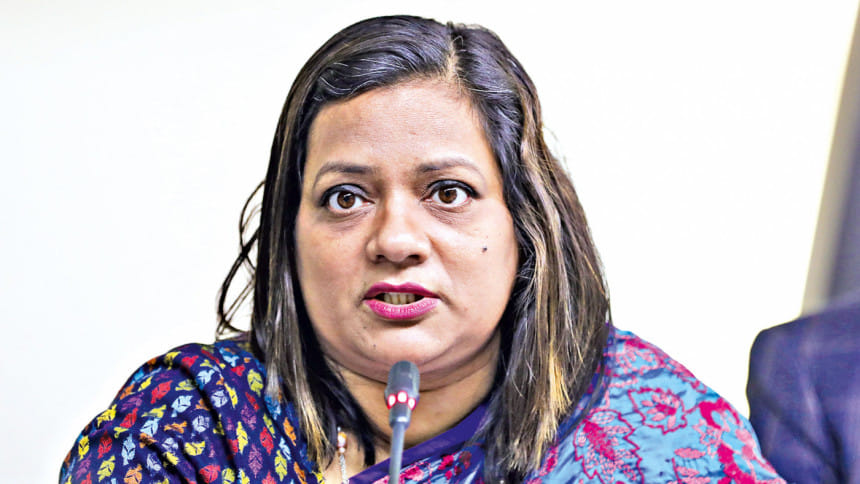
Sahela Akter, Deputy Secretary, Ministry of Industries
Raising awareness about ESG and GRI is crucial. The Ministry of Industries is responsible for SMEs, BCIC, BSCIC, the leather industry, BSEC, sugar and food corporations among others. The Industrial Policy, 2022 focuses on sustainable and environmentally friendly industrialisation.
Hence, we are promoting environmental protection, waste management and establishment of Effluent Treatment Plants (ETPs) in industries. The ministry is also prioritising protection of environment and human health during ship recycling process. Our efforts are directed towards ensuring standards for the export market, with BSTI working on the harmonisation of standards.
Ministry of Industries has taken initiative for upgrading testing laboratories and improving workforce skills.
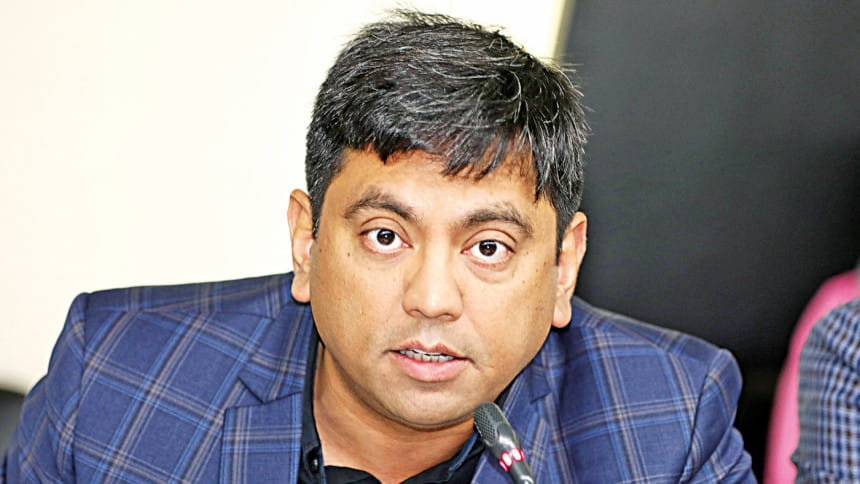
Mohammad Rashed, Vice-President, BKMEA
There should be a top-down approach rather than a bottom-up one. Owners of mid-level factories must assess profitability in relation to the implementation of ESG. Buyers have various regulations, and new policies often lead to the perception of increased costs. However, ESG reporting is a cost-effective system.
Factory owners in Bangladesh today seek communication networks with buyers. Moreover, there is a need for standardised policies that facilitate transactions.
Annual timelines may offer better solutions. Development partners must provide segmented roadmaps, and the public sector must also step in with clear policies.
We need a healthy ecosystem, with all stakeholders clearly informed about their roles. Challenges exist in formal, informal, and social compliance sectors, but win-win solutions can only be achieved with clear roadmaps.

Sadril Shajan, Senior Research Associate at the Center for Entrepreneurship Development (CED), BRAC University
A comprehensive data repository system for all reports could be established. Currently, BRAC, with the support of BGMEA and BKMEA, is developing a data reporting system. The initiative began with funding from Lord's Foundation for the first phase, and the second phase is now in progress, supported by both Lord's Foundation and GIZ. This data is publicly accessible.
GRI indexing enables factories to monitor and report their sustainability efforts, with some larger factories already adopting the system. However, widespread adherence to new regulations cannot be achieved overnight.
It is important to ask, "Who are the willing participants eager to adopt GRI and comply with EU-sanctioned laws?" Equally, the challenges and support needs of the "non-willing" participants must be addressed.
Green and just transitions, which focus on moving towards a sustainable and low-carbon economy while ensuring social justice, are becoming increasingly relevant to discussions on economic development and equity. Financing such transitions requires a commercial business model rather than an over-reliance on external funding.
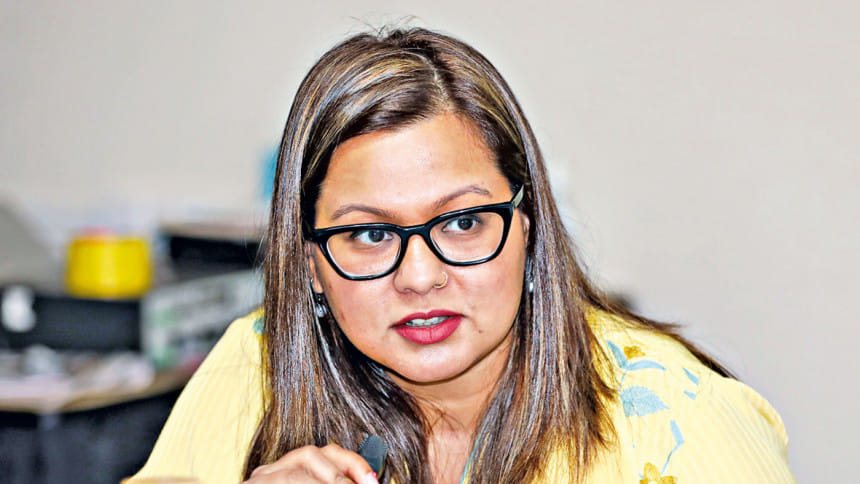
Tanzila Tajreen, Senior Policy Advisor for the Embassy of the Kingdom of the Netherlands
Approximately 30 companies in Bangladesh, primarily in the financial sector, are actively reporting as per GRI standards. Few in the RMG sector is reaping the benefit too but not majority. GRI Reporting offers the opportunity to strengthen an organization's brand and show it as a commitment in sustainability. Currently, annual reporting is a standard practice for all including RMG sector. Incorporating GRI standard based reporting with annual reporting merely adds another dimension. It involves elements that ultimately helps the company understand its impact on economy, environment and society. Effective partnerships and dialogue remain central to advancing these reporting practices.
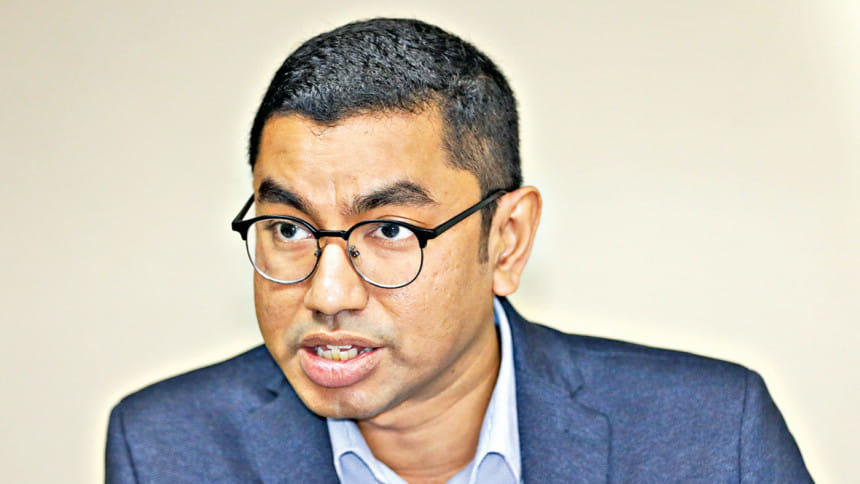
Tanjim Ferdous, In-charge of NGO and Foreign Missions, Business Development Team, The Daily Star & Moderator of the Session
Bangladesh's RMG industry plays a pivotal role in the nation's economy. However, with increasing global scrutiny on ethical labour practices, environmental responsibilities, and supply chain transparency, adopting internationally recognised standards like GRI has become imperative.
The adoption of GRI standards can enhance Bangladesh's reputation, improve compliance, and bolster accountability on the global stage. Constructive dialogues on this subject are essential to raise awareness and encourage more factories to embrace sustainability reporting.
Recommendations
- The government should develop a comprehensive policy framework with strong regulatory guidelines to ensure sustainable growth in the RMG sector.
- Establish robust mechanisms to align with global ESG regulations.
- Develop training programmes through partnerships with BGMEA, BKMEA, and academic institutions to address skill gaps and strengthen sustainability expertise.
- Encourage closer collaboration between government bodies, industry associations, and international partners to support initiatives like PACT and ESG data platforms.
- Ensure full implementation of GRI reporting obligations through capacity-building initiatives and collaborations with partners.
- Shift the focus from ESG to SGE in Bangladesh, addressing gaps in workers' organisations, trade unions, and decent wages to align with international labour standards.
- Scale up programmes like Better Work to educate and train factories to comply with safety and labour standards.
- Provide targeted support in achieving zero emissions, promoting water reuse, and advancing the circular economy to enhance the RMG sector's sustainability.
- Introduce a holistic and inclusive programme to educate companies on GRI principles.
- Facilitate access to soft loans with favourable terms for SMEs to support the adoption of advanced technologies and compliance with emerging international regulations.
- Industry associations should develop a comprehensive roadmap for the adoption of GRI standards within a public-private framework

 For all latest news, follow The Daily Star's Google News channel.
For all latest news, follow The Daily Star's Google News channel. 



Comments